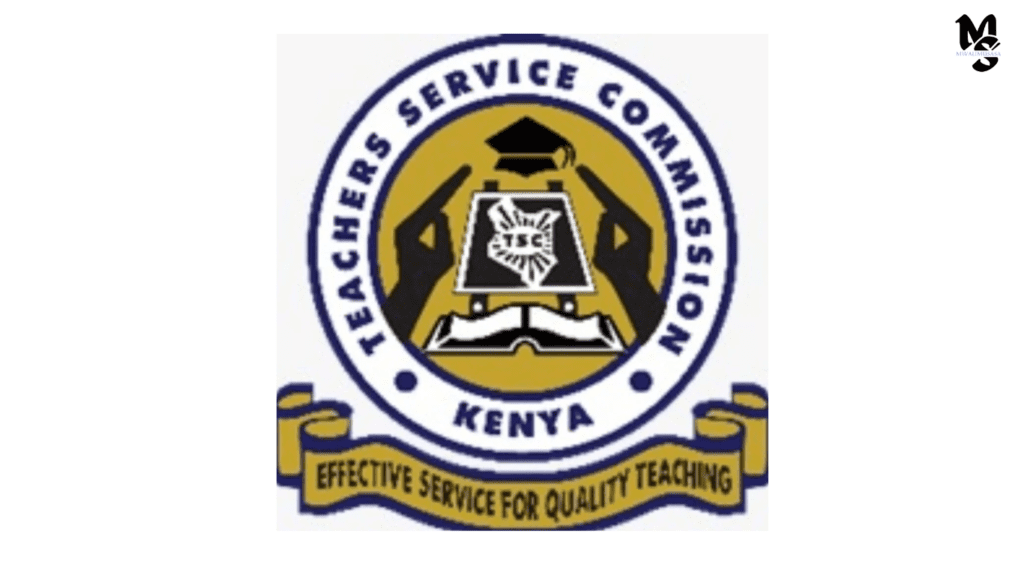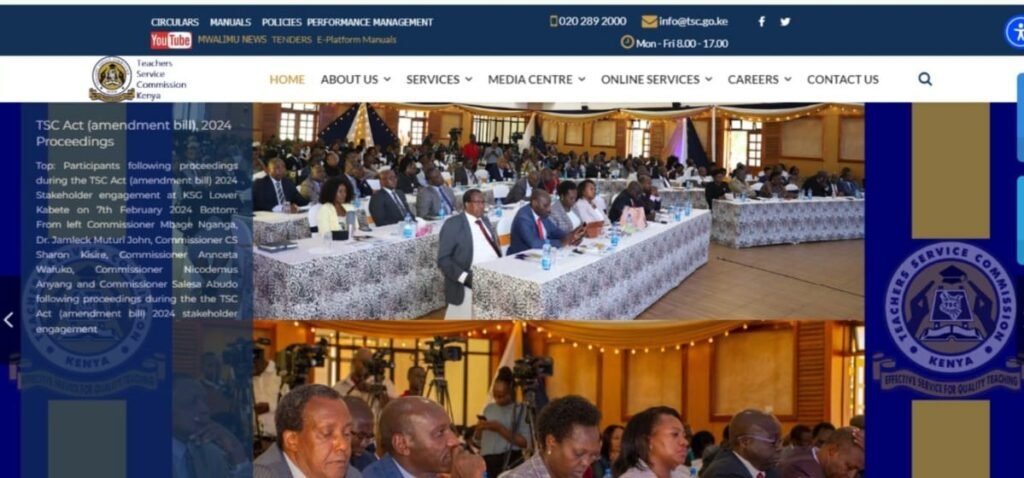Understanding the TSC Teacher Code of Conduct

A female teacher in classroom with pupils

Introduction: The Importance of Ethics in Teaching
Ethics play a crucial role in the teaching profession, serving as the backbone of a healthy educational environment. The TSC Code of Conduct outlines the expectations concerning teacher ethics, underscoring the importance of maintaining professional conduct at all times. Adhering to these guidelines ensures the development of trust and respect between educators and their students, which is foundational for effective learning experiences.
In the context of the teaching profession, ethical behavior is paramount not only in fostering a positive student-teacher relationship but also in guiding teachers through various ethical dilemmas they may encounter. Teachers are often confronted with situations that require them to make decisions aligned with their professional responsibilities and ethical standards, reflecting the importance of upholding the TSC guidelines. These situations can range from addressing classroom behavior to navigating sensitive topics within the curriculum.
Moreover, ethical conduct is vital for sustaining a safe learning environment. When teachers display professionalism, they contribute to the overall well-being of their students, thereby enhancing the educational experience. This environment encourages students to engage openly and poses fewer psychological barriers to learning. Teachers, aware of their role in shaping future generations, must recognize the implications of their decisions and how they affect both the academic and moral development of their students.
Disciplinary measures aligned with the TSC penalties are critical for addressing any breaches of professional ethics. Such measures not only protect the integrity of the teaching profession but also serve to remind educators of their responsibilities in upholding the highest standards of conduct. Ultimately, the commitment to ethical practices reinforces teacher professionalism and enhances the credibility of the educational system as a whole.
Key Principles in the TSC Code of Conduct
The Teacher Service Commission (TSC) Code of Conduct embodies a set of fundamental principles that shape teacher behavior and underscore the importance of professionalism in the education sector. Central to these principles is integrity, which mandates that teachers act honestly and ethically in all dealings, thereby establishing trust within the educational community. Teachers are expected to maintain a high standard of personal integrity, which serves as a foundation for a healthy student-teacher relationship and positively influences students’ attitudes towards learning.
Respect is another essential principle articulated in the TSC guidelines. It emphasizes the need for teachers to treat all students, colleagues, and parents with dignity, thereby fostering an inclusive and harmonious learning environment. Respectful interactions not only enhance teacher-student relationships but also promote a culture of collaboration among educators, which is critical for efficient educational practices.
Accountability also plays a pivotal role in the professional conduct expected from educators. Teachers are required to be responsible for their actions and decisions, ensuring that they reflect the values enshrined in the TSC Code of Conduct. This principle underscores the importance of adhering to ethical guidelines and being answerable to students, parents, and the institution. It reinforces the notion that teachers hold significant authority and must exercise it judiciously.
Lastly, fairness is a crucial principle that guides teachers in their interactions and decision-making processes. It requires educators to treat students equitably, making unbiased judgments in academic and disciplinary matters. Upholding fairness not only aids in preventing discrimination but also reinforces the students’ sense of justice and belonging within the educational framework.
Collectively, these principles of integrity, respect, accountability, and fairness work together to ensure that teacher responsibilities align with the established ethical standards and promote a positive educational experience. The TSC Code of Conduct is thus a vital instrument in guiding teachers through various ethical dilemmas and disciplinary measures they may encounter in their profession.
Teacher Responsibilities According to TSC

According to the TSC code of conduct, teachers hold significant responsibilities that extend beyond mere instructional duties. These responsibilities encompass a broad spectrum of obligations towards students, parents, and the community at large. A cornerstone of teacher ethics is the unwavering commitment to promote student welfare, ensuring that each learner is given the support needed for their academic and personal development.
Teachers are expected to foster a positive student-teacher relationship characterized by respect, trust, and understanding. This relationship is vital for creating an environment conducive to learning, where students feel secure and valued. Maintaining open lines of communication with parents is equally essential; teachers should ensure that parents are kept informed about their children’s progress and any concerns that may arise. Such communication enhances the partnership between educators and families, contributing to better educational outcomes for students.
Beyond individual classrooms, teachers have a responsibility to contribute positively to the community. This involves engaging in initiatives that promote educational improvement and social development, adhering to tsc guidelines that call for active participation in community affairs. Teachers are also expected to uphold professional conduct at all times, serving as role models for students and reflecting the ethical standards expected within the profession.
Moreover, the TSC code of conduct sets forth expectations regarding disciplinary measures to address any breaches of teacher professionalism. Teachers should be mindful of the consequences of their actions, as violations can result in tsc penalties. As educators navigate the complexities of their roles, they may encounter ethical dilemmas that require careful consideration and adherence to the principles outlined in the TSC code. By embracing these responsibilities, teachers not only fulfill their obligations but also contribute to a more robust educational framework that benefits society as a whole.
Consequences of Violating the Code
The Teacher Service Commission (TSC) Code of Conduct is established to maintain high standards of teacher professionalism and ethical behavior within educational institutions. When educators fail to adhere to these guidelines, a variety of disciplinary measures and penalties can be enacted. These consequences are implemented to ensure that both the integrity of the teaching profession and the welfare of students are upheld.
Violations of the TSC Code of Conduct can lead to serious repercussions, primarily in the form of job-related disciplinary actions. This may include warnings, suspension, or even termination of employment for severe infractions. Such measures are taken to penalize actions that compromise teacher ethics and professional conduct, signaling the gravity of adhering to the stipulated guidelines. The loss of employment can severely affect a teacher’s career, particularly if the violation is deemed grave or recurrent.
In addition to termination, educators may also face the revocation of their teaching credentials. The TSC guidelines explicitly state that teachers found guilty of serious misconduct may no longer qualify for certification, thereby hindering their ability to practice within the profession. This becomes particularly pertinent in cases involving ethical dilemmas that could harm the student-teacher relationship, as these circumstances often result in a long-lasting impact on a teacher’s professional reputation.
Furthermore, teachers may encounter legal implications stemming from violations of the code of conduct. Such issues can result in lawsuits or criminal charges, particularly in cases involving misconduct or abuse. The TSC penalties serve not only as a punitive measure against the individual but also function as a deterrent against potential violations that could jeopardize student safety and welfare. Overall, adherence to the TSC Code of Conduct is imperative for promoting a responsible and ethical teaching environment.
Real-Life Examples of Ethical Dilemmas
Teachers often encounter ethical dilemmas that challenge their decision-making in the classroom. The TSC Code of Conduct serves as a guiding framework for navigating these complexities, ensuring that educators uphold high standards of professional conduct. One common scenario occurs when a teacher discovers that a student has cheated on an important exam. In this situation, the teacher faces a dilemma: should they report the incident, risking the student’s academic future, or choose to overlook it, potentially undermining the integrity of the assessment? The TSC guidelines emphasize the importance of honesty and integrity, suggesting that reporting such incidents is a professional responsibility despite the potential repercussions for the student.
Another ethical dilemma arises when a teacher is approached by a student who seeks personal advice regarding issues at home. While the teacher may feel a moral obligation to support the student, they must also consider the boundaries of the student-teacher relationship. Providing personal advice can lead to inappropriate emotional dependencies, thus jeopardizing student welfare and contravening the TSC Code of Conduct. In such cases, a teacher should guide the student toward appropriate support services, ensuring they remain within the confines of their professional role while still being supportive.
A third scenario includes teachers who have friendships with parents of students. When these relationships influence educational decisions, such as grading or disciplinary measures, the integrity of the teacher’s professional conduct may come into question. The TSC penalties for breaches in ethical standards highlight the necessity of maintaining impartiality in these situations. Teachers must remain vigilant in separating personal relationships from their responsibilities to avoid ethical conflicts and ensure fair treatment for all students. In navigating these dilemmas, educators are encouraged to reflect on the TSC teacher ethics, align their decisions with the established guidelines, and seek collaboration with colleagues when faced with uncertain situations.
How to Interpret the TSC Code of Conduct

Interpreting the TSC Code of Conduct is vital for educators to navigate the complexities of their professional responsibilities effectively. The TSC guidelines are designed to uphold teacher ethics and enhance the student-teacher relationship, yet understanding their nuances can be challenging. Educators are encouraged to approach the code with a mindset that fosters critical thinking. This means analyzing not only the letter of the rules but also their implications in various situations.
One key aspect of effective interpretation is recognizing the context in which specific guidelines apply. For instance, the guidelines regarding professional conduct can vary significantly depending on whether a teacher is interacting with students, colleagues, or the community. Citing real-life scenarios when discussing teacher professionalism can help illustrate how these standards come into play. By considering examples of ethical dilemmas, educators can better understand the rationale behind the TSC penalties that might be imposed for violations.
Moreover, engaging in discussions with peers about the TSC code can yield different perspectives that aid in understanding. This collaborative approach allows teachers to not only clarify their own interpretations but to also challenge and refine them. It is essential for educators to feel comfortable seeking guidance when they encounter uncertain situations or need clarification on disciplinary measures.
Additionally, ongoing professional development opportunities provided by educational institutions can serve as a platform for teachers to deepen their comprehension of the TSC Code of Conduct. Such initiatives not only reinforce the importance of ethical considerations but also highlight the collective responsibility that educators share in maintaining a high standard of conduct within the profession.
Ultimately, interpreting the TSC Code of Conduct effectively equips teachers to navigate the challenges they face daily while upholding their professional integrity.
The Role of Professional Development in Ethics
Continual professional development plays a crucial role in enhancing teachers’ understanding of the TSC code of conduct and fostering a strong framework for teacher ethics. As educational environments become increasingly complex, it is imperative for educators to engage in ongoing training and professional learning. These opportunities not only deepen their knowledge of the TSC guidelines but also equip them to handle ethical dilemmas effectively, thereby reinforcing their professional responsibilities.
Various professional development programs are designed to address the challenges educators face in maintaining ethical standards. Workshops, seminars, and online courses focus on topics such as professional conduct, student-teacher relationships, and the implications of TSC penalties. By participating in these programs, teachers can refine their understanding of the principles that govern their profession and stay abreast of evolving standards and practices. This engagement is vital in cultivating a culture of accountability within educational institutions.
The continuous nature of professional development emphasizes the importance of lifelong learning. This commitment not only positions teachers to navigate ethical challenges but also fosters a sense of teacher professionalism. Understanding the nuances of the TSC code of conduct empowers educators to make informed decisions that reflect their ethical obligations. Consequently, such training helps mitigate the risk of disciplinary measures resulting from unethical conduct.
Furthermore, a well-rounded professional development initiative supports collaborative learning among educators, allowing them to share experiences and insights regarding ethical practices. By discussing real-world scenarios related to teacher ethics, educators can develop solutions that uphold integrity and respect in their interactions with students.
In conclusion, prioritizing professional development in ethics significantly enhances a teacher’s ability to meet the challenges of their role, thereby ensuring that they uphold the highest standards of professionalism in their practice.
Creating a Culture of Ethical Responsibility
Establishing a culture of ethical responsibility within educational institutions is paramount to upholding the teacher ethics outlined in the tsc code of conduct. This involves fostering an environment where ethical discussions are encouraged among staff members. Schools can initiate regular workshops and training sessions centered around the tsc guidelines, which cover important aspects of professional conduct. By facilitating open discussions regarding ethical dilemmas that educators face, institutions can empower teachers to consider the implications of their decisions more critically.
Moreover, policies that support ethical behavior are essential in reinforcing these discussions. Schools should develop and implement comprehensive frameworks that clearly define teacher responsibilities in relation to ethical issues. These policies should address typical scenarios that may arise in the student-teacher relationship and outline the tsc penalties that may be incurred for violations. Not only do such policies serve as guidance, but they also demonstrate a commitment to teacher professionalism and integrity.
Peer accountability is another effective strategy for cultivating a sustainable culture of ethical responsibility. By encouraging educators to hold one another accountable, institutions can foster a sense of collective responsibility toward maintaining ethical standards. Creating mentorship programs where experienced teachers guide newer staff can also be beneficial, particularly in navigating the complexities of daily interactions with students and colleagues. Such initiatives facilitate a supportive environment where teachers are motivated to reflect upon their actions and decisions consistently.
In conclusion, promoting ethical behavior through meaningful discussions, clear policies, and peer accountability can significantly enhance the ethical landscape within educational settings. By aligning with the principles set forth by the tsc code of conduct, schools can cultivate a culture that not only protects students but also uplifts the teaching profession as a whole.
Conclusion: Reinforcing the Importance of Maintaining High Standards
The role of educators is both vital and impactful, making adherence to the TSC Code of Conduct essential for effective teaching. As outlined by the Teaching Service Commission (TSC) guidelines, teacher ethics are not merely recommendations; they signify the foundational principles that guide professional conduct within educational environments. Educators are not only responsible for imparting knowledge but also for embodying models of integrity and professionalism. Upholding these high standards is crucial in shaping positive student-teacher relationships and fostering an environment conducive to learning.
Furthermore, the TSC guidelines emphasize the necessity for educators to navigate ethical dilemmas judiciously, ensuring that their decisions reflect both professional responsibilities and a commitment to student welfare. This alignment with teacher ethics not only builds trust within the educational community but also enhances the overall professionalism of the teaching cohort. Failure to adhere to these standards can lead to significant consequences, including TSC penalties which can adversely affect a teacher’s career trajectory. Thus, understanding and committing to ethical protocols is pivotal in preventing disciplinary measures that could undermine a teacher’s professional standing.
Ultimately, maintaining high ethical standards extends beyond mere compliance with the TSC Code of Conduct—it is about embracing the responsibilities that accompany the teaching profession. Each educator plays a significant role in not only imparting knowledge but also in instilling values and shaping the future of society. Hence, as they navigate their duties, teachers must continuously reflect on their professional conduct and uphold the principles outlined in the TSC guidelines, thereby ensuring that their contributions to education remain both meaningful and constructive. By reinforcing these commitments, educators can profoundly influence the lives of their students, ensuring a brighter future for all.






